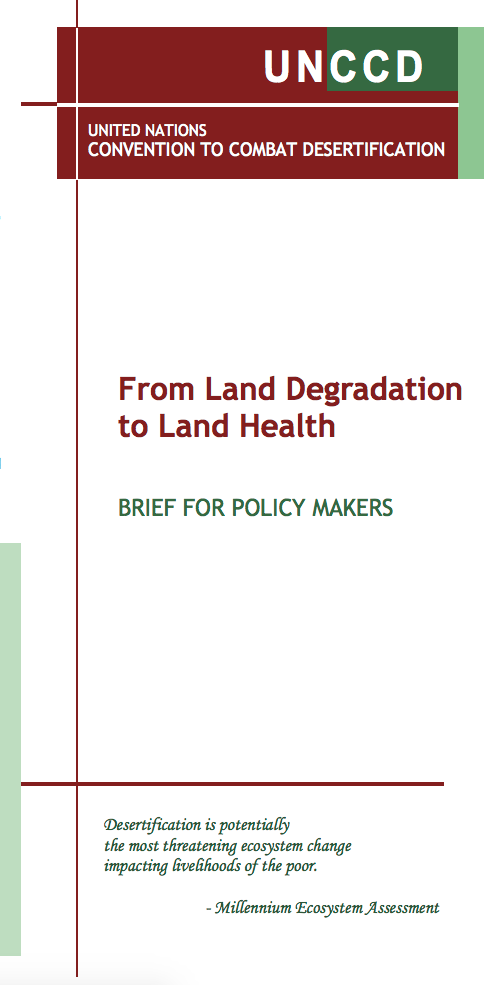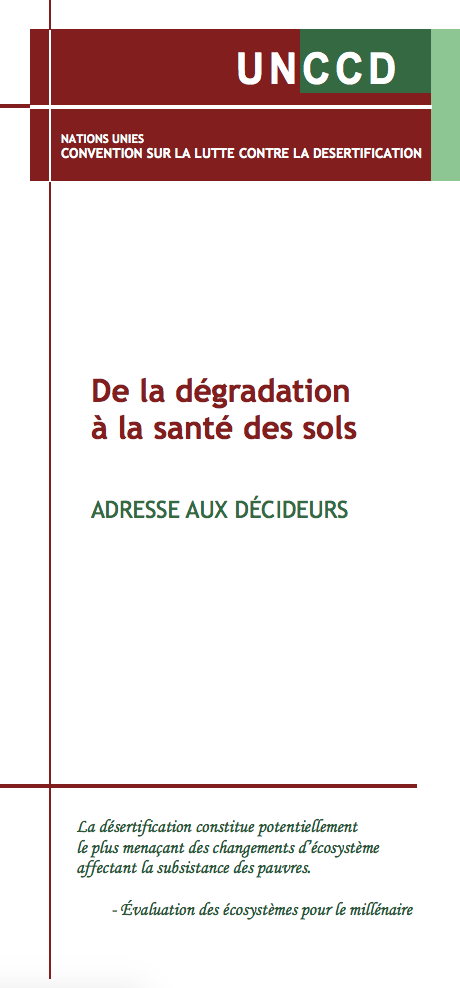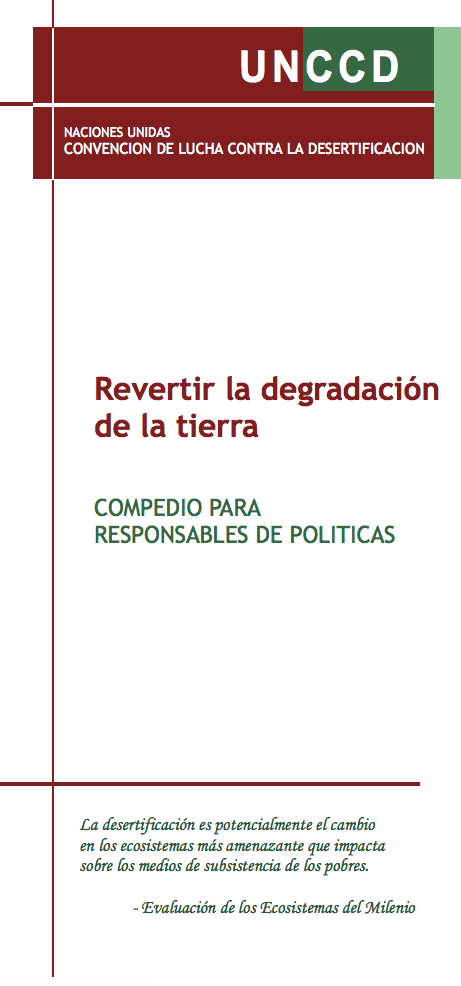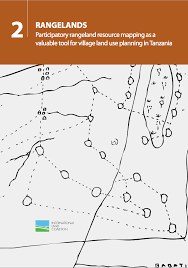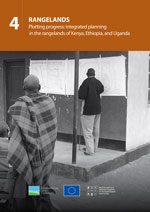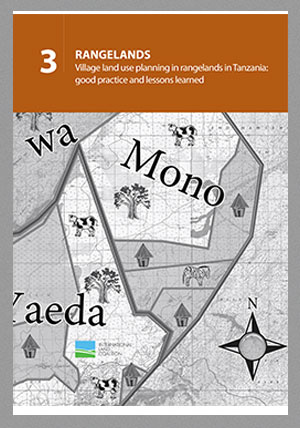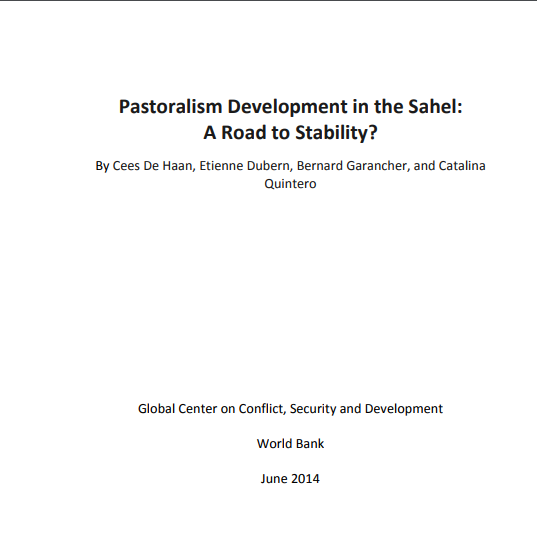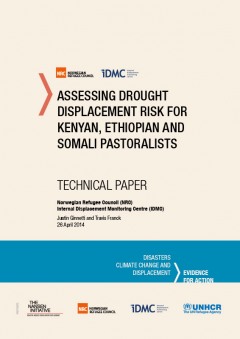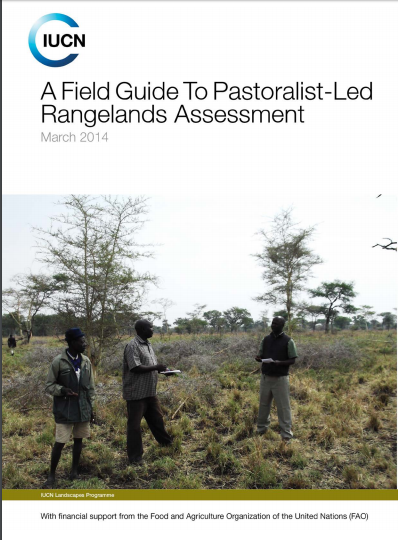parcours
AGROVOC URI:
Workshop for Dryland Systems: ESA Flagships Eveidence-based Transformation
Workshop Objectives
From Land Degradation to Land Health
This is a brief for Policy Makers titled "From Land Degradation to Land Health"
De la dégradation à la santé des sols
C'est une adresse aux Décideurs "De la dégradation à la santé des sols"
Revertir la degradación de la tierra
Esto es un Compedio Para Responsables de Politicas "Revertir la degradación de la tierra"
Participatory rangeland resource mapping as a valuable tool for village land use planning in Tanzania
This Issue Paper No.2 is part of the series Making Rangelands Secure, a learning initiative supported by ILC, IFAD, RECONCILE, IUCN-WISP and Procasur. The Making Rangelands Secure Initiative has been established by a group of organisations seeking to improve security of rights to rangelands. The initiative seeks to identify, communicate and build good practice on making rangelands secure for local rangeland users.
Plotting progress: integrated planning in the rangelands of Kenya, Ethiopia, and Uganda
Ill advised, uncoordinated, and badly planned interventions have been blamed for continuing poverty and food insecurity in rangelands. Water interventions in particular have had negative impacts. Not only have these interventions failed to improve the livelihoods of people living there, but in many cases they have served to undermine them and the environment on which they depend. Rangeland development interventions have been sectoral in their approach.
Village land use planning in rangelands in Tanzania: good practice and lessons learned
This Issue Paper No.3 is part of the series Making Rangelands Secure, a learning initiative supported by ILC, IFAD, RECONCILE, IUCN-WISP and Procasur. The Making Rangelands Secure Initiative has been established by a group of organisations seeking to improve security of rights to rangelands. The initiative seeks to identify, communicate and build good practice on making rangelands secure for local rangeland users.
Pastoralism Development in the Sahel: A Road to Stability?
Pastoralism is one of the dominant economies of the Sahel and is by far the main economy on the fringes of the Sahara, a zone of which recently some areas have become unstable. It is estimated that about 50 million people rely on pastoralism for their livelihoods in the Sahel and the Saharan fringes, and most of them are poor. However, the Northern parts of the Sahel and the Sahara have seen a rapid recrudescence of trafficking and other illegal activities. Some areas are now home to extremist groups, several of which are involved in terrorist activities.
Assessing drought displacement risk for Kenyan, Ethiopian and Somali pastoralists
A new way of thinking This study reflects emerging awareness of the need to see disasters as primarily social, rather than natural, phenomena. Individuals and societies can act and take decisions to reduce the likelihood of a disasters occurring or, at the very least, to reduce their impacts and the levels of loss and damage associated with them. Disasters are thus no longer being perceived as ‘acts of God’ but instead as something over which humans exert influence.
A Field Guide to Pastoralist-led Rangelands Assessment
Community-Led Rangelands Assessment promotes the use of traditional or indigenous knowledge of pastoralists, as the dominant group utilizing rangelands, to guide planning and management of rangelands resources to support and build resilient pastoral livelihoods. Use of traditional knowledge is considered cheaper, easier to use and replicable. It promotes the respect of local communities’ culture and its integration into scientific methods.


